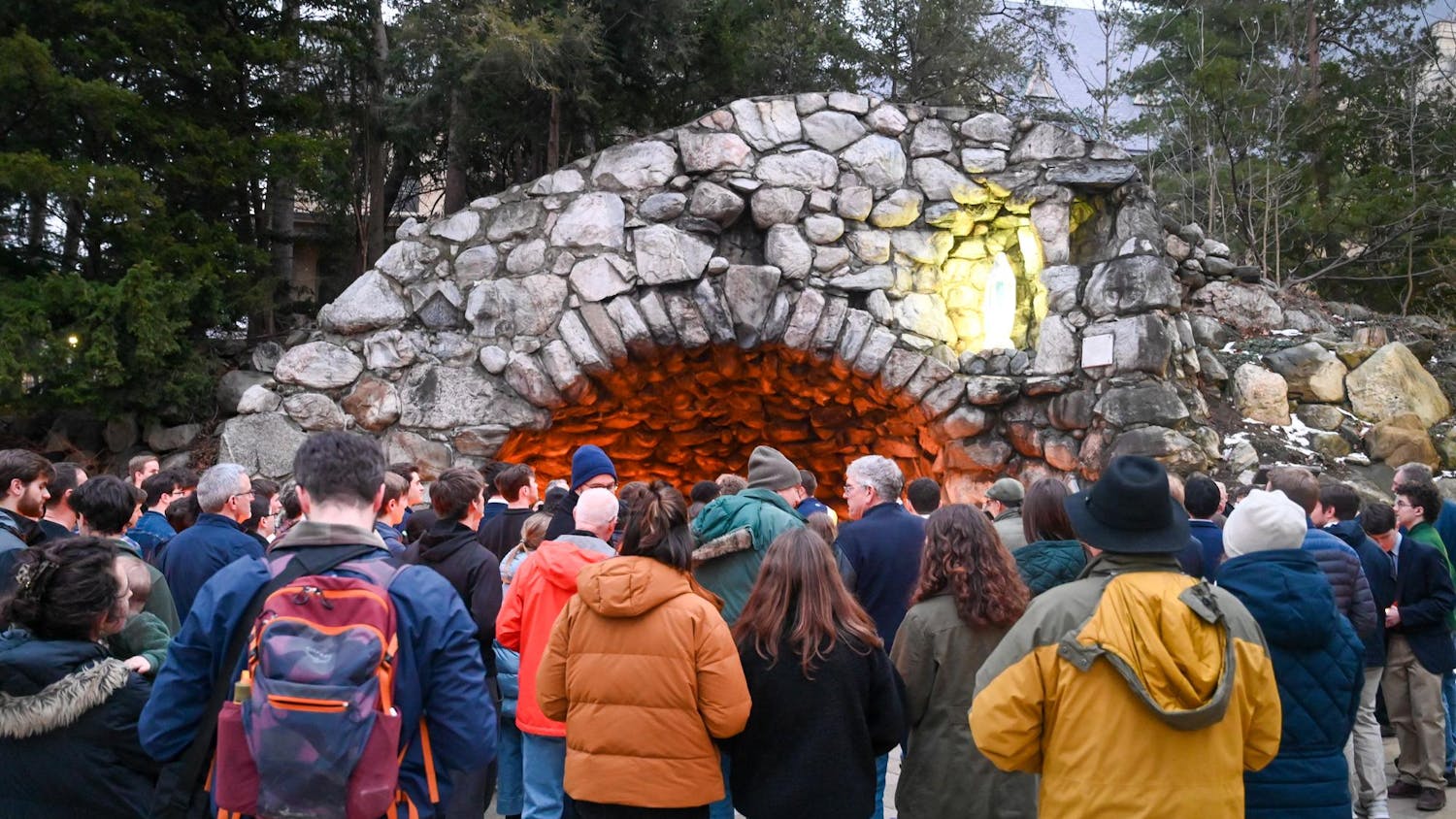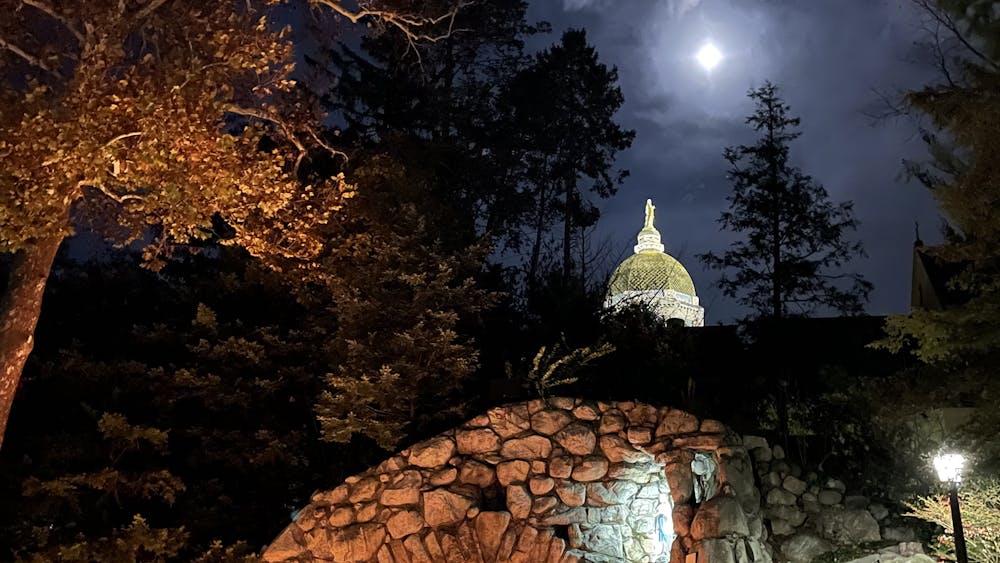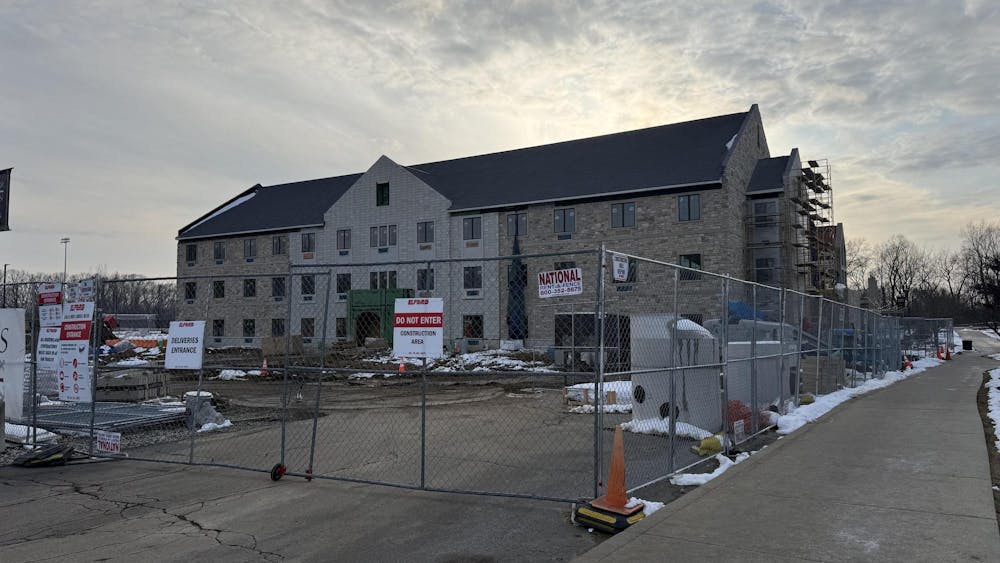As students and fans made their way into Notre Dame Stadium ahead of the first two home games of the 2019 football season, they may have noticed an additional layer of security outside the gate. In the past, fans only underwent a bag check before having their tickets scanned. Now game patrons have to pass through metal detectors before entering the stadium.
Vice president for campus safety and University operations Mike Seamon said the addition of metal detectors, also known as magnetometers, constitutes the most noticeable new security measure for the season.
“The most, I think, visible change from 2018 season to 2019 is the introduction of magnetometers — or ‘mags’ as everyone refers to [them], or metal detectors,” he said.
Seamon explained the metal detectors are designed to look for very specific items — namely weapons. Accordingly, everyday metal items — such as cell phones and keys — do not need to be removed, or “divested,” from pockets because they will not set off the magnetometers.
“They're looking for guns, knives, anything that could be used as a weapon,” Seamon said. “I’m not going to go into the technicalities, but it's a very intelligent system. And so it's been interesting, the first two games watching people take stuff out and be like, ‘where’s the bucket that I put it?’ And you’re like, ‘no, just keep walking, keep walking at what I call a normal pace.’”
On Saturday, there will be signs outside the stadium instructing attendees not to remove items from their pockets so that traffic runs more smoothly.
“We’re going to add signs that say you don't have to empty your pockets … just to help people,” he said. “But I also think I’ve seen it, definitely between New Mexico and Virginia. Just like the bag policy, everybody gets more used to it with every game. They get a routine.”
One of the motivating factors behind the change, Seamon said, was a series of events with outside partners the University hosted last year, including the Garth Brooks concert last October, the NHL Winter Classic in January and the Liverpool FC soccer match over the summer.
“We started looking at this as early as last year at this time,” Seamon said. “There were a couple of things that invited us to get really serious about it. And we had been keeping our eye on that in through the industry, but we got really serious last fall when we hosted Garth Brooks in October. And then we hosted the Winter Classic with the NHL on Jan. 1. And then when we eventually hosted the Liverpool soccer match in July.”
All three outside partners wanted to use magnetometers for their events, Seamon said.
“Those were three outside entities — Garth Brooks himself, the NHL and Liverpool soccer — that wanted to do mags,” he said. “They were used to that. We realized we were the host venue for their events. And when that kind of introduced into it, we were able to see how it worked.”
Once football season ends, the metal detectors will be redeployed to the Purcell Pavilion and Compton Family Ice Arena for all home men’s and women’s basketball as well as hockey games.
“Our plan is to do it for both all home men’s and women’s basketball games in Purcell Pavilion and for all the hockey matches in Compton,” Seamon said. “That that’s our standard now, where we use the same set of mags that are housed for the fall in the football stadium. One of the benefits of us purchasing is you don’t want to move them around too much because they’re sensitive. But yes, once the football season ends, we're going to move a certain amount to the Joyce Center — to Purcell — and a certain amount to Compton and then we'll use them there.”
Football game day security involves more than just the magnetometers. Seamon and Dennis Brown, assistant vice president for news and media relations, described a number of other security steps in addition to the metal detectors. For example, starting last year, uniformed police officers have also been aided by two sniffer dogs, Toxi and Skeet. Other local law enforcement groups — including South Bend, Mishawaka, St. Joseph County and Indiana State Police — help ensure a safe environment on game day.
“The cooperation and collaboration between the various law enforcement and first responders is really phenomenal,” Brown said. “And we’re fortunate to have people in South Bend police and Mishawaka police and state police who really are there to protect and serve. And at the same time, we have a mutual policy. So we’re there for them too.”
Read More
Trending









